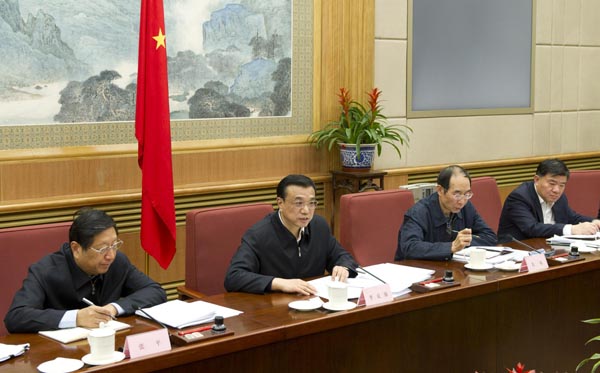China to deepen healthcare reform: Vice-Premier
Updated: 2011-11-30 10:06
(Xinhua)
|
|||||||||
BEIJING - Vice-Premier Li Keqiang on Tuesday said the government is looking at measures that will deepen the reform of China's health care system, including increased allowances and expanding the coverage of the country's essential medicine system.
|
 |
|
Chinese Vice-Premier Li Keqiang (2nd L) presides over a health care-themed meeting convened by the State Council, or China's cabinet, in Beijing on Nov 29, 2011. [Photo/Xinhua] |
Li made the remark while presiding over a health care-themed meeting convened by the State Council, or China's cabinet, according to a statement issued after the meeting.
He said the government will raise the level of allowances for medical insurance plans in both rural and urban areas, although no details were given in the statement.
He said the reforms are aimed at allowing all of the country's citizens to take part in medical insurance plans, ensuring universal access to basic health care services.
A total of 1.29 billion Chinese, or 95 percent of the nation's population, are currently covered by medical insurance, while the price of basic medicine dropped by an average of 16.9 percent during the 2009-2011 period, according to the meeting.
China kicked off its health reforms in April 2009, aiming to correct long-standing problems in its health system and ease public grievances.
The essential medicine system and the reform of publicly funded hospitals are the two main pillars of China's health care reforms.
The essential medicine system requires doctors to prescribe only essential medicines and to sell those medicines at wholesale prices. Previous prescriptions included a 15-percent mark-up.
Li said the essential medicine system will be expanded to village-level public clinics and private clinics.
Li also stressed the importance of county-level hospitals in the country's health care system, adding that the government should enhance health care services through concerted means.
He said that health care reform is now facing new challenges during the 12th Five-Year Plan period (2011-2015) due to accelerating urbanization and an aging population.











